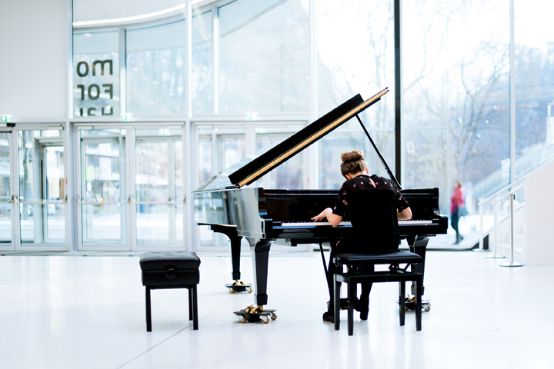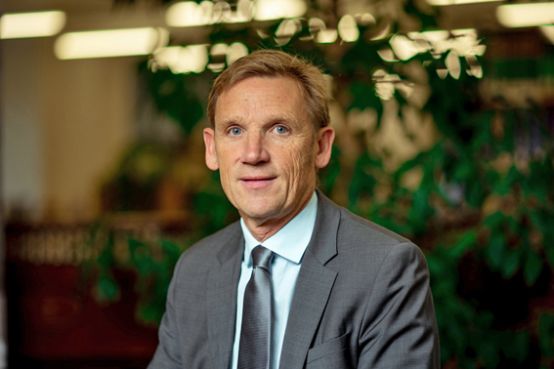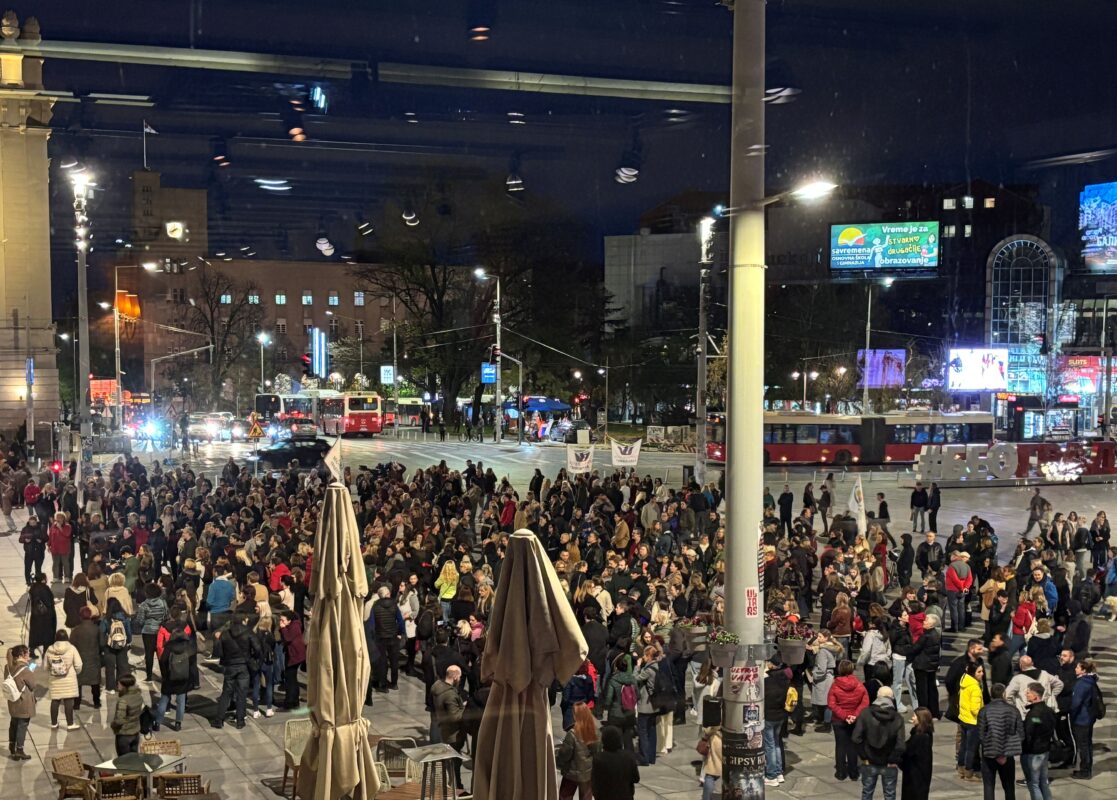Thinking and acting together
"Music works on three levels: regional, social and individual." This statement in the trailer for the symposium in Feldkirch was the theme of the two-day event.

The Vorarlberg State Conservatory hosted a symposium for cultural and music professionals on February 4 and 5. The topic of "Music and Society" brought together around 170 participants from the four-country region in the Montforthaus Feldkirch together. In addition to presentations and inputs, there were lively debates in discussion rounds and the first-ever format was used to exchange ideas.
Culture for everyone who wants it
Martin Tröndle (Zeppelin University Friedrichshafen) laid the foundation for the subsequent debates with his report on "non-visitor research": cultural institutions (in the narrower sense of theaters, opera houses and classical concert halls) are known as places where only a small part of society can be found. However, it is still quite unclear who misses out on the many offerings of the classical sector and, above all, for what reasons. A few findings from a study (conducted in Berlin in 2019 with around 1,300 young academics) are briefly mentioned here: the classic feature pages are hardly used as a place for information and preparation, while offline information and friends are the second most important source after the internet.
Lack of time and money are often cited as reasons for not attending traditional events; however, they are not decisive for visitor behavior. Tröndle speaks of 11 % of so-called "never-visitors" who are hopeless to try to attract; it is more worthwhile because it is more promising to get to know the 20 or so % of "not-yet" and "maybe-visitors". Institutions can ask themselves how they can offer "proximity" on all possible levels and how they can make their establishment and their offerings inviting for all those who want culture.
Music and regional development
The Blaibach concert hall in the Bavarian Forest, a local project that has become known beyond the region, was largely financed by urban development programs. The well-known problem of operating costs for programming also exists here, as is the case with many other organizers. In the meantime, public funding has been completely dispensed with here, as it is too insignificant compared to the effort required to obtain it. Artistic Director Thomas E. Bauer passionately argues that there is a right to prominent culture as well as to education and infrastructure - even in rural areas.
The concert series "Montforter Zwischentöne" seeks regional relevance by involving the local communities, playing in urban spaces and having an impact beyond Feldkirch into the Rhine Valley with its 250,000 inhabitants. In its own productions, themes from the region are taken up and artistically processed in new concert formats; participation here means taking "user competence" just as seriously as expertise.
Qualification for sociomusic projects
Christine Rhomberg (Hilti Foundation) provided an example of practical talent promotion with her report on the commitment "Music for social change" and introduced the second major topic of the meeting: How can musicians be empowered to get involved in social contexts while still in training? Creative people and clever collaborations are needed to combine the established music business and socio-musical initiatives such as JeKi or Superar in a sustainable and profitable way.
It is an urgent task to bring music studies and teacher training closer together in order to close the devastating gaps in children's basic musical education. This was also made clear in the presentation by Peter Heiler from the Bregenz Music School: for a "music school in school", music teachers are needed who have the entire spectrum of "educate - learn - play" in mind, as there is less and less support from parents.
Many musical program points enriched the symposium, various ensembles of the Vorarlberg State Conservatory as well as the many-membered Superar Choir (conducted by Magdalena Fingerlos) performed. The final round of the Hugo Competition - an international student competition for new concert formats organized by Montforter Zwischentöne - presented four teams from German-speaking music academies with ideas on the theme of "Taking detours". The XYlit collective from Leipzig won over the jury and audience with their entry "Traumlandschaft"; the Hugo winners received 1000 euros in prize money and can now develop their project with a professional production budget for the Montforter Zwischentöne summer festival.
The symposium was a successful prelude to further exchange between music and society and was cleverly placed: The Landeskonservatorium has just applied for accreditation as a music university. For the artistic director, Jörg Maria Ortwein, his institution and the symposium are equally important as "a source of inspiration for innovative approaches. The aim is to establish the emerging private music university as an ideal platform for the development of artistic personalities with a multi-layered impact on society."
-

For Jörg Maria Ortwein, Artistic Director of the State Conservatory, networking and innovative educational approaches are important. Photo: Vorarlberg State Conservatory/Victor Marin








